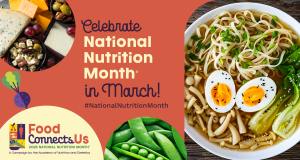
by Samantha Kennedy | Oct 24, 2025

Taking the time to identify and plug spending leaks can help reduce stress and improve overall financial health. (Photo source: Adobe Stock)
When it comes to managing money, most people focus on the big-ticket items: rent or mortgage, car payments, or student loans. But it is often the small, unnoticed expenses – known as spending leaks – that can really make a big impact on overall financial health. These leaks may seem harmless on their own, but over time, they can add up to hundreds or even thousands of dollars lost each year.
What Are Spending Leaks?
Spending leaks are recurring or impulsive purchases that do not add significant value to your life but slowly drain your budget. Think of them as the financial equivalent of a dripping faucet – barely noticeable at first, but potentially becoming a flood over time. Common culprits include daily coffee runs, unused subscriptions (magazines, streaming services, etc.), frequent takeout, ATM fees, and impulse buys.
Costly Coffee
One of the most cited examples of a spending leak is the daily coffee habit. Spending $6-8 a day on specialty drinks may not seem like much, but over a year, that could add up to nearly $3,000. Brewing coffee at home or switching to a more affordable option can plug this leak without sacrificing your morning ritual.
Surplus Subscriptions
Streaming services, fitness apps, cloud storage, and digital magazines: many people are subscribed to more services than they actually use. According to a survey by Variety magazine, Americans spend an average of $69 a month on subscriptions, and many of those subscribers often lose track of all they are paying for. The same thing goes for magazine subscriptions. It is so easy to let those build up. Reviewing subscriptions quarterly and canceling unused ones can free up significant cash.
Expensive Eats
Grabbing lunch at work or ordering dinner a few times a week might feel like a convenience, but it is a major leak. Preparing meals at home – even just a few more times a week than you currently do – can save hundreds of dollars a month. Even with the higher cost of groceries, meal prepping and planning ahead can make home cooking more manageable and cost-effective. Frequent use of meal delivery apps is also an easy way to spend more than necessary on meals.
Convenience Costs
Using out-of-network ATMs or paying for convenience fees when paying bills online can seem minor, but they add up. Opt for fee-free banking options whenever possible, and plan ahead to avoid unnecessary charges. Even small fees of $2–$5 per transaction can total over $100 annually. Overspending can also lead to expensive late fees, overlimit fees, and overdraft fees.
Bargain Buys
Retailers are masters at encouraging unnecessary purchases – whether it is a tempting display at checkout or a flash sale online. One way to combat this is by implementing a 24-hour rule: wait a day before making any non-essential purchase. This simple habit can help you avoid buyer’s remorse and keep your budget intact. Even if something seems like a bargain, it is still a waste of money if it is something you do not need.
Spending leaks are sneaky, but they are also fixable. By identifying and addressing these small, recurring expenses, you can take control of your finances without making drastic lifestyle changes. A few mindful adjustments can lead to big savings—and a healthier financial future.
For more information about this and other money management topics, please call your local Family & Consumer Sciences (FCS) agent. You can find your nearest Florida FCS agent here.
An Equal Opportunity Institution.

by Samantha Kennedy | Sep 26, 2025
Today’s world can offer up a lot of stressors and as a result, many individuals face mounting pressures and mental health challenges. Recent studies reveal that pet ownership provides a unique sense of comfort and stability that can alleviate stress and anxiety. By inviting a pet into one’s home, people often experience immediate emotional support and a renewed sense of purpose. The presence of a loving animal can transform a lonely day into one filled with hope and connection.
Experts in psychology and human behavior have long noted the therapeutic benefits of caring for pets. Regular interactions with animals not only reduce cortisol levels but also increase oxytocin production, a hormone associated with happiness and bonding. Dog walks, playful cat moments, and even the calm companionship of a fish tank routine give structure to daily life. These activities encourage mindfulness, improve mood, and help many cope with depression.

Holding a pet can reduce stress and increase production of “feel-good” chemicals in the brain that can improve mood. (Photo source: Adobe Stock)
One of the biggest benefits of pet ownership is that pets offer unconditional emotional support without judgment. Caring for a pet refocuses negative thought patterns by providing individuals with a sense of responsibility. Additionally, the daily routines associated with pet care foster discipline and regularity, which are essential for maintaining mental balance. Patients who engage actively with their pets frequently report feeling less isolated and more optimistic about their futures.
Community connections can also blossom through pet ownership. Local pet events and dog parks bring together individuals from varied backgrounds, creating networks of support that extend beyond the pet’s company. Such encounters not only foster social interaction but also build trust and empathy among neighbors. In many cases, these casual relationships evolve into meaningful friendships that serve as additional layers of safety and emotional reassurance. Community events centered around pets underscore the social benefits that extend from personal well-being to societal harmony.
As mental health continues to be a focal point in discussions on overall wellness, owning a pet emerges as a natural remedy for many of modern society’s stressors. While pets require time, effort, and dedication, their rewards often surpass the challenges. A pet not only enhances an individual’s health by providing physical activity through daily routines but also nurtures mental and emotional strengths. In moments of grief or stress, the steady presence of a pet can remind owners that life’s simplest pleasures are often the most profound.
For those struggling with isolation or depression, the embrace of a pet might provide a much-needed bridge to a happier, healthier future. Amid the hustle of everyday life, the soft purr of a cat, the wag of a dog’s tail, or even the quiet flutter of a bird’s wings offers solace and hope. People who have adopted pets express an enriched sense of belonging and community, experiences that are increasingly recognized as integral to mental health. Research continues to delve deeper into the intricate link between animal companionship and psychological resilience. In the meantime, pet ownership can serve as a valuable complement to traditional mental health treatments such as therapy and medication.
For more information about this and other mental health topics, please call your local Family & Consumer Sciences (FCS) agent. You can find your nearest Florida FCS agent here.
An Equal Opportunity Institution

by Samantha Kennedy | Jun 30, 2025
As hurricane season approaches, families in coastal and low-lying areas are bracing themselves for the possibility of devastating storms. While many people may think they are prepared, the reality is that many families are not equipped with a plan to deal with the chaos and destruction that comes with a hurricane. In this article, we will explore the importance of developing a family emergency plan and provide tips on how to create a comprehensive plan that will keep your loved ones safe.
A Plan is Not a Guess
Developing a family emergency plan should not be a guessing game. It is a proactive step that can mean the difference between life and death. A plan outlines what to do in case of an emergency, including evacuation routes, safe meeting points, and communication protocols. Without a plan, families are left to fend for themselves, which can lead to confusion, panic, and tragedy.

Now is the time to prepare your family’s emergency supply kit. Be sure to include items such as nutritious snacks, canned goods, important documents, first aid kit, and other essential items. (Adobe Stock photo)
Key Components of a Family Emergency Plan
A comprehensive family emergency plan should include the following key components:
Safe Meeting Point: Designate a safe meeting point outside the home in case you get separated. This could be a neighbor’s house, a landmark, or a specific location in your neighborhood.
Communication Plan: Establish a communication plan that includes how you will stay in touch with each other, including phone numbers, email addresses, and social media accounts.
Evacuation Routes: Identify evacuation routes and emergency shelters in your area. Make sure everyone knows the routes and shelters.
Emergency Contact Information: Make sure everyone knows important phone numbers, such as your insurance company, emergency services, and utility companies.
Important Documents: Keep important documents, such as insurance policies, identification, and medical records, in a safe and easily accessible location.
Tips for Creating a Family Emergency Plan
Involve Everyone: Make sure everyone in the household is involved in the planning process. This will ensure that everyone knows what to do in case of an emergency.
Practice Drills: Practice your emergency plan with regular drills to ensure everyone knows what to do.
Stay Informed: Stay informed about weather updates and emergency alerts from local authorities.
Review and Update: Review and update your emergency plan regularly to ensure it is current and effective.
Don’t Wait Until It’s Too Late
Do not wait until the last minute to develop a family emergency plan. The consequences of not having a plan can be dire. By creating a comprehensive plan, you will be better equipped to handle the challenges of hurricane season. Remember, a plan is not a guarantee of safety, but it can significantly reduce the risk of injury or death.
Safety Tips
- Stay away from windows and doors during a hurricane.
- Avoid traveling during a hurricane.
- Keep a first aid kit and emergency supplies with you at all times.
- Stay informed about the latest weather updates and forecasts.
- Follow evacuation orders from local authorities.
Developing a family emergency plan is a crucial step in ensuring the safety and well-being of your loved ones during hurricane season. By creating a comprehensive plan, you will be better equipped to handle the challenges of storms and reduce the risk of injury or death. Do not wait until it is too late – take action now and create a plan that will keep your family safe.
An Equal Opportunity Institution.

by Samantha Kennedy | Mar 28, 2025
In today’s credit-centric economy, maintaining a healthy credit score is more crucial than ever. One of the most effective ways to ensure good credit health is by regularly reviewing your annual credit reports from all three major credit reporting agencies: Equifax, Experian, and TransUnion. This practice not only helps you stay informed about your financial status but also protects you from potential fraud and errors that could negatively impact your credit score.
Understanding Your Credit Report
A credit report is a detailed record of your credit history, including information about credit accounts, payment history, and any public records such as bankruptcies or liens. Each of the three major credit reporting agencies collects and maintains this information independently, which means that your credit report from Equifax may differ slightly from the one provided by Experian or TransUnion. By reviewing all three reports, you get a comprehensive view of your credit history and can identify any discrepancies or inaccuracies.
Detecting Errors and Fraud
Errors on credit reports are more common than is often thought. According to a study by the Federal Trade Commission, one in five consumers has an error on at least one of their credit reports. These errors can range from incorrect personal information to inaccurate account details or even accounts that do not belong to you. By reviewing your credit reports annually, you can spot these errors early and take steps to correct them before they cause significant damage to your credit score.
In addition to errors, reviewing your credit reports can help you detect signs of identity theft. If you notice unfamiliar accounts or inquiries on your report, it could be a sign that someone has stolen your personal information and is using it to open credit accounts in your name. Early detection is key to minimizing the damage caused by identity theft, and regularly checking your credit reports is one of the best ways to catch fraudulent activity quickly.
Improving Your Credit Score
Your credit score is a numerical representation of your creditworthiness, and it plays a significant role in your ability to obtain loans, credit cards, and even housing. By reviewing your credit reports, you can identify areas where you can improve your credit score. For example, you might notice that you have high credit card balances or a history of late payments. By addressing these issues, you can work towards improving your credit score over time.

Reviewing a copy of your credit report from each credit reporting agency at least once a year is a great way to discover errors that may negatively impact your credit worthiness. (Adobe Stock photo)
Taking Advantage of Free Reports
Under the Fair Credit Reporting Act (FCRA), you are entitled to one free credit report from each of the three major credit reporting agencies every 12 months. In 2024, this changed to free weekly copies of your credit report from each agency. This means you can access your credit reports from Equifax, Experian, and TransUnion at no cost, giving you the opportunity to review your credit history without any financial burden. To obtain your free reports, you can visit AnnualCreditReport.com, the only authorized website for free credit reports. You will never be asked to pay for your credit report on this site. If you are, you are on the wrong site.
Reviewing your credit report from all three major credit reporting agencies is a vital step in maintaining your financial health. By staying informed about your credit history, detecting errors and fraud early, and taking steps to improve your credit score, you can ensure that you are in the best possible position to achieve your financial goals. Don’t wait until it’s too late—make reviewing your credit reports a regular part of your financial routine.
An Equal Opportunity Institution

by Samantha Kennedy | Feb 27, 2025

National Nutrition Month helps promote healthy eating for individuals and families. (Photo source: Academy of Nutrition and Dietetics, eatright.org)
Maintaining a healthy diet is more crucial than ever. According to the Academy of Nutrition and Dietetics, a nutritious, balanced eating plan is essential for optimal health at every stage of life. Healthy eating not only helps manage weight and prevent chronic diseases but also boosts mental well-being and energy levels.
Healthy eating involves consuming a variety of foods that provide the nutrients needed to maintain health, feel good, and have energy. These nutrients include protein, carbohydrates, fat, water, vitamins, and minerals. A balanced diet includes fruits, vegetables, whole grains, and lean proteins, which are vital for maintaining a healthy body and mind.
The benefits of healthy eating are numerous. It can reduce the risk of chronic diseases such as heart disease, diabetes, and cancer. Additionally, a nutritious diet supports brain function, improves mood, and enhances overall quality of life. For instance, incorporating more fruits and vegetables into your diet can provide essential vitamins and minerals that boost your immune system and keep you feeling energized.
Beyond its nutritional value, food has a unique ability to bring people together. The theme for National Nutrition Month 2025, “Food Connects Us,” highlights how food plays a significant role in our social lives.
Sharing meals is a universal experience that transcends cultural and geographical boundaries. It fosters a sense of community and belonging, whether it is a family dinner, a holiday feast, or a casual get-together with friends.
Food connects us to our heritage and traditions. Many cultures have specific dishes that are passed down through generations, each with its own story and significance. These culinary traditions are often at the heart of celebrations and rituals, reinforcing cultural identity and continuity.
Moreover, preparing and sharing meals can strengthen relationships. Cooking together can be a fun and educational activity that encourages teamwork and communication. It provides an opportunity to learn about different ingredients, cooking techniques, and cultural practices. Eating together allows for meaningful conversations and the sharing of experiences, which can deepen bonds and create lasting memories.
Promoting both healthy eating and the social aspects of food can be achieved through various initiatives. National Nutrition Month encourages people to make informed food choices and develop sound eating and physical activity habits.
Communities can organize events such as cooking classes, nutrition workshops, and communal meals to educate and engage people in healthy eating practices. Schools and workplaces can also play a role by providing nutritious meal options and creating environments that support healthy lifestyles. Encouraging family meals at home can help children develop healthy eating habits and strengthen family connections.
Healthy eating is vital for maintaining physical and mental well-being. At the same time, food has the power to bring people together, fostering a sense of community and connection. By embracing both the nutritional and social aspects of food, we can enhance our health and enrich our lives.
An Equal Opportunity Institution










